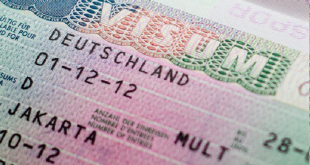The cost of living and studying in Germany is fairly reasonable in comparison to other European countries. In fact, the cost of food, clothing, and living is in line with price levels in the European Union. Therefore, you’ll need around €1,000 a month to cover living and accommodation expenses.
Table of Contents
How much does it cost to study and live in Germany?
Living expenses for a student will include the following:
- Personal expenses: rent, food, clothes, books, phone etc.
- Semester contribution (will be discussed below).
- Obligatory health insurance.
- Tuition fees
As a student, you’ll need between €700 and €1,100 a month to live in Germany, including accommodation. This amount will vary from city to city. For that reason, we advise that you choose a small city in order to save money. Your monthly living cost will depend on the lifestyle that you’re used to or will adopt once in Germany.
Additionally, all students in Germany can get student discounts. Discounts include theater, museum, opera and cinema tickets in addition to public swimming pools and other leisure and culture spots.
Semester contribution fees
All university students are required to pay a contribution fee every semester. Fees will normally go up to €250 per semester, but may vary depending on your university and the services it offers. These fees will usually cover public services like food courts, student halls, sports, and admission. These services will cost €100 outside the semester contribution plan.
Student contribution also covers public transport tickets. Also, keep in mind that you can get public transport around the university campus for 6 months.
Cost of studying in Germany: University tuition fees
You can study at public universities for free in Germany. In public universities, bachelor’s degree programs and some Masters and PhD programs are funded by the government. You don’t have to pay any tuition fees when registering your credit hours. All you need to do is pay semester contribution fees and public transport tickets mentioned above.
Private universities are funded by tuition fees. If you don’t get a scholarship to a private university, you’ll be paying €20,000 a year.
You can also qualify for student financial aid as an international student. To qualify for financial aid for your bachelor’s degree, you have to be younger than 30. Similarly, you’ll have to be younger than 35 to secure aid for your Master’s program. Nevertheless, there can be exceptions depending on the circumstances.
Student financial aid is divided into two. The first half of the financial aid is a government-granted scholarship. The second half is in the form of a student loan that will be paid in monthly installments after graduation.
Health insurance
If your at-home health insurance is not valid in Germany, you’ll have to join a German health insurance program. In fact, many insurance companies have student discounts that reach €80 a month as long as you’re below the age of 30 and have not studied for more than 14 semesters. Otherwise, the cost will rise to €160 a month or more.
Get more details about health insurance for international students in Germany in our guide on the subject.
Student accommodation in Germany
Undoubtedly, rent will take a large sum of a student living cost in Germany. You can also view our article on how to get student accommodation in Germany. It should be noted, rent tends to be more expensive in some of the big cities like Cologne, Munich, Hamburg, Düsseldorf, Frankfurt and Mainz.
The cheapest student housing options in Germany are residence halls and flat-sharing. Over 40% of international students opt for university dormitories, which cost about €250 per month. Flat sharing on the other hand is the popular among 30% of students in Germany, and cost around €450 per month. Private student accommodation rents can cost up to €750 per month.
Moreover, along with the rent, students also may need to pay separately for utility bills. It’s the case if these costs aren’t included in the rent. But to have an estimation for these costs, you can put aside:
- 40 to 80 euros per month for electricity and water
- 50 to 100 euros per month for heating
- About 35 euros per month for internet
- Up to 5 euros per month for garbage disposal
Food cost in Germany for students
Students in Germany will pay about €200 per month on food. And to lower the prices even more, cooking food at home is better than eating out in a restaurant. You may be able to get a meal plan if possible through your university. To shop for groceries, you can go to cheaper supermarkets such as Aldi, Lidl or Netto.
If you wish to eat out once in a while, this will cost you between 8 and 14 euros in a small restaurant. Moreover, a three-course meal for 2 persons in an average restaurant will cost about 50 euros.
Estimated monthly expenditure
- Monthly rent €300
- Food and drink €160
- Clothes €52
- Stationary €30
- Public transportation €82
- Health insurance €80
- Phone, TV and internet services €30
- Culture, sports and leisure activities €68
Now that you are aware of the cost of living as a student, note that you can also get a student job while studying in Germany.
Read also about getting post-graduate jobs in Germany.




 Aljawaz Your guide to study abroad
Aljawaz Your guide to study abroad






















